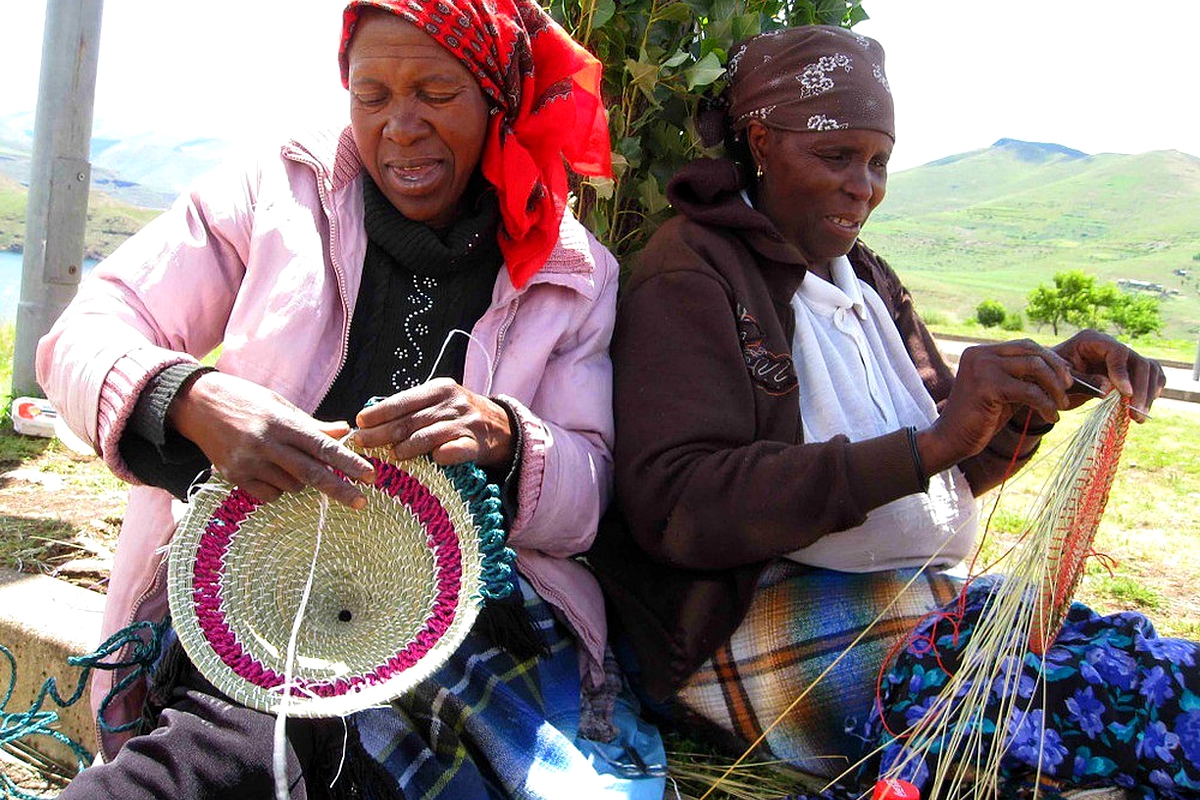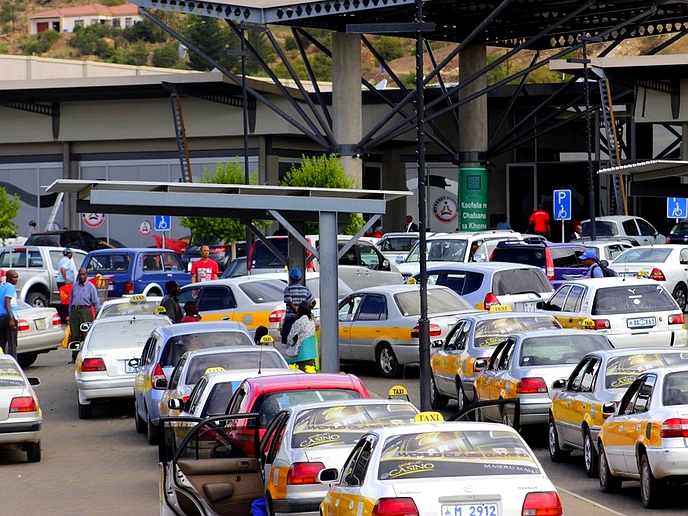AS the debate about formalising the informal sector rages on, the Government has been largely blamed for its negligence on the sector, despite its notable contributions to the country’s economy. The sector is heavily dominated by women.
business
Oct. 12, 2021
NEO SENOKO
3 min read
Govt slated for “neglecting” informal sector

Informal female traders making the famous Basotho Hat (Mokorotlo)
Story highlights
Analysts argue that there are always snags towards formalising the informal sector, a move that they contend could generate more revenue for the Government.
The informal economy has significant job and income generation potential because of the relative ease of entry and low requirements for education, skills, technology and capital.
Some informal traders, however, may not want to graduate into the formal trade because it is more profitable where they are, mainly due to the fact that running costs are lower and less risky. Some see formalising the sector as a punitive measure that comes with little or no incentive for them.
While formalisation could scare them off, it might also come with more benefits that include bridging the gap towards access to finance among others.
“The country has failed this sector. The Government should create a conducive environment for informal traders to exist. We need to start valuing and respecting the sector and look into how much it brings into the economy,” said Steven Monyamane, a representative from the Lesotho Chamber of Commerce and Industry (LCCI), a non-profit organisation that is among others aimed at supporting the transformation and growth of Lesotho’s economy.
Mr Monyamane was one of the panelists during the panel discussion about bridging the divide between formal and informal cross border traders recently.
The event was in line with the 15th global ministerial conference of United Nations Conference on Trade and Development (UNCTAD) that was held in Barbados.
The UNCTAD is an agency of the United Nations (UN) responsible for promoting trade and investment interests of the developing states in the world trade.
Lesotho has a long history working with UNCTAD on trade and development issues, including the formulation and review of various policy instruments including the trade policy, investment policy and the services policy, as well as implementation of programmes such as the ASYCUNDA for customs modernisation and Micro Small and Medium Enterprises (MSME) capacity building.
Enjoy our daily newsletter from today
Access exclusive newsletters, along with previews of new media releases.
The Principal Secretary (PS) in the Ministry of Small Business Development, Cooperative and Marketing, Advocate Bereng Makotoko said the mainstream MSMEs in the country contribute significantly to the economic agenda, accounting for 84 percent of all businesses in Lesotho, creating around 76 000 jobs.
Yet, he argued, efforts to promote the sector to a viable economy are limited.
“This is a way to go if we want to develop our economy, we need more than mere political will to overcome some challenges. At the same time, the sector also has to show effort. Dialogue is needed for formalisation. Some MSMEs do not even recognise when it is time for formalisation,” Adv Makotoko said.
With street vendors for instance, formalisation involves secure access to public space, licenses to sell and infrastructure support. Policy makers, on the other hand cannot do it alone. They need informal workers at the table, sharing their knowledge and working on solutions to ensure that the best policies are created.
Work in the informal economy is often characterised by small or undefined work places, unsafe and unhealthy working conditions, low level of skills and productivity, low or irregular incomes, as well as lack of access to markets, information, finance, training and technology.
Workers in the informal economy are not recognised, registered, regulated or protected under labour legislation and social protection. Economic units in the informal economy are generally characterised by poverty leading to powerlessness, exclusion and vulnerability.
Tailored for you






